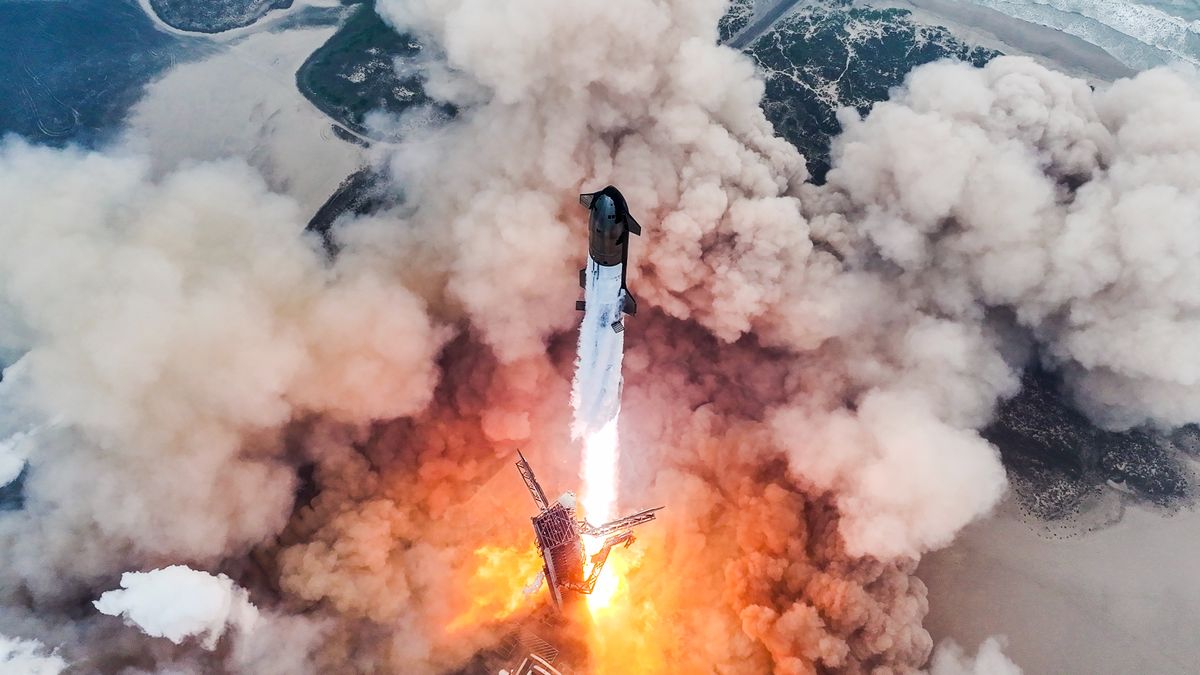SpaceX’s Starship megarocket will start flying Mars missions just two years from now, if all goes according to plan.
“These will be uncrewed to test the reliability of landing intact on Mars. If those landings go well, then the first crewed flights to Mars will be in 4 years,” SpaceX founder and CEO Elon Musk said via X on Saturday evening (Sept. 7), in a post that announced the bold new target timelines. (Earth and Mars align properly for interplanetary missions once every 26 months.)
“Flight rate will grow exponentially from there, with the goal of building a self-sustaining city in about 20 years,” Musk added in the same post. “Being multiplanetary will vastly increase the probable lifespan of consciousness, as we will no longer have all our eggs, literally and metabolically, on one planet.”
The stainless-steel Starship consists of two elements: a first-stage booster called Super Heavy and a 165-foot-tall (50 meters) upper-stage spacecraft known as Starship.
A stacked Starship is the biggest and most powerful rocket ever built. It stands about 400 feet (122 meters) tall and generates 16.7 million pounds of thrust at liftoff — nearly twice that of the Space Launch System (SLS), the rocket for NASA’s Artemis moon program.
SLS is expendable, but Starship is designed to be fully and rapidly reusable. Indeed, SpaceX plans to land Super Heavy back on the launch mount after each liftoff, enabling quick inspection, refurbishment and relaunch.
SpaceX believes that Starship’s combination of brawn and efficiency will finally bring Mars settlement — a long-held dream of Musk’s — within humanity’s grasp.
Related: SpaceX test-fires Super Heavy Starship booster ahead of 5th flight (video)
Starship isn’t fully up and running yet. It has flown four test missions to date — in April and November of 2023 and March and June of this year. The giant vehicle has performed better on each successive flight, notching all of its major objectives on the most recent mission.
SpaceX is currently gearing up for Starship’s fifth flight, which could take place quite soon; the company has already performed test-fires with the Super Heavy and the Starship that will fly the mission.
Flight five will feature some new and dramatic action — the first attempt to land Super Heavy back on the launch mount, an operation that will involve the use of the launch tower’s “chopstick” arms. As Musk often says about Starship flights, excitement is guaranteed.











